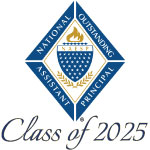
Stephen Phillips
Holly Hill Elementary School
Enterprise, Alabama
sphillips@enterpriseschools.net
Best Practices
1) Assistant Principal’s Role as Instructional Leader: One of my responsibilities as the assistant principal at Holly Hill Elementary School is chairing our Problem Solving Team. This role is one of the ways in which I get to serve our school as an Instructional Leader. Coming from a thirteen-year background as a secondary teacher and administrator and entering the elementary world a little more than a year ago presented me with a learning curve, not least of which was in the area of elementary curriculum and instruction. However, leading in this capacity and having the opportunity to work alongside out school’s PST team has allowed me to grow as an elementary school instructional leader, but more importantly, it has led to increased student success. Our teachers, interventionists, counselors, coaches, and I work closely to ensure all our students are receiving the instruction and support they need to be successful academically and behaviorally. By having the assistant principal lead our school’s PST team, I am able to continually keep a pulse on how our students are doing. This allows me to be aware of how our students are performing — not as generic data points, but as individuals with unique needs we are working to meet and whose successes we can celebrate together. When students are struggling, or when our academic or behavioral interventions are proving to be inadequate or ineffective, I am able to work alongside our teachers as we modify or develop a new plan going forward. As we navigated the implementation of the Literacy Act, this role enabled me to be involved and knowledgeable of our third grade students’ progress throughout the year as they prepared to take the ACAP. This past year our work translated to Holly Hill Elementary School seeing Academic Achievement rise by 4.41 points, maintaining a 100 in the area of Academic Growth, and having zero students retained in third grade under the newly implemented Literacy Act. As we move forward, we will continue to work toward providing our students every opportunity to improve.
2) Student Leadership: One of the initiatives that has been an asset in our school is the Student Ambassador program. Each homeroom class elects two students to serve as Classroom Ambassadors, while six students are elected to serve as Lead Ambassadors. The Lead Ambassadors include a president and vice-president who are elected from the sixth grade, along with four event coordinators — two from fifth grade and two from fourth grade. Students running for Classroom Ambassador prepare a speech that they give in their homeroom class and those running for Lead Ambassador give a speech during an assembly in our cafeteria. In order to be eligible to run for and maintain these offices, students must meet the outlined requirements. These include having earned and maintaining a grade of a B or above in each subject area and not having received an office referral that results in suspension or multiple office referrals within one school year. The Ambassador program gives students the opportunity to practice and demonstrate leadership skills. Even among students who do not get elected, they still benefit from having the opportunity to prepare and give a speech to their peers. The students who are elected to these positions serve as guides for school visitors and give speeches at school events such as our Veteran’s Day Parade and Parent and Grandparent visitation days. They also coordinate the planning, organizing, and execution of school events including community service activities, family events, and the Jolly Trolley for Holly Hill faculty and staff. Another benefit of this initiative is that it motivates students to take ownership of their academics and behavior. Many of our students desire to serve as Ambassadors and they understand that in order to do so they must satisfy the prerequisite requirements to be eligible to serve in these offices. The eligibility requirements provide accountability for both students serving as Ambassadors, as well as for those who desire to run for Ambassador in the future. Our student Ambassadors help to enrich our school by planning and putting on events that benefit our faculty, students, and community. They assist us in greeting visitors to our school, encouraging our faculty and staff with periodic appreciation events, and by serving as positive examples for their peers.


